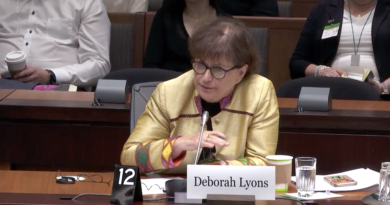AfD poses a threat to Social Democrats stronghold in Brandenburg as Germany heads to the polls
In Brandenburg, a close race between AfD and SPD could result in a right-wing populist victory that threatens Chancellor Scholz’s position in his home state.
Germany’s state of Brandenburg is on the verge of a significant political shift as voters prepare to cast their ballots this weekend in a tight race between the AfD and Social Democrats.
AfD-Brandenburg aims to replicate its recent successes in Saxony and Thuringia, where it emerged as the dominant political force. In Thuringia on Sept. 1, the AfD secured nearly 33 percent of the vote, and almost 31 percent in Saxony, setting a new precedent in eastern Germany.
Olaf Scholz
An AfD victory in Brandenburg, located around the national capital Berlin, could signal a major upset for the Social Democrats, who have governed the state since the fall of the Berlin Wall. This win could also jeopardize Chancellor Olaf Scholz’s position in his home state.
The state is home to Tesla’s first European factory and includes affluent areas within the Berlin commuter belt, but many rural villages and farmlands have been in decline for decades.
Hans-Christoph Berndt, the leading candidate of AfD-Brandenburg, is challenging the Social Democrats’ dominance by tapping into local discontent.
“The declining quality of education can also be seen as an attempt to stifle critical thinking among Brandenburgers,” he adds.
“The exaggerated and medically unfounded COVID-19 measures have revealed that the state government does not prioritize Brandenburg’s interests but obediently follows directives from Berlin and Brussels.”
Huge Ramifications
Richard Schenk, a research fellow at the think tank MCC Brussels, notes that the AfD has established roots in Brandenburg since its entry into the state parliament in 2014, despite the state’s historical allegiance to the Social Democrats.
“It’s essentially a battle between the SPD and AfD. A defeat for the SPD with a popular candidate would have significant consequences,” Schenk explains. “This would indicate that the federal government’s negative image is so deeply ingrained that even a popular candidate in a stronghold cannot win an election.”
Schenk highlights that while people generally approve of the state government, the federal government is widely unpopular.
“Only 14 percent of Germans believe that the government is performing well overall,” he adds.
He also points out that energy and immigration issues resonate with Brandenburg’s rural population.
“Brandenburg previously had Germany’s largest oil refinery for Russian oil, but the federal government halted its import. The AfD has been the primary party to capitalize on discontent over the proliferation of wind farms in the state,” Schenk notes.
If the SPD falters in Brandenburg, it could open the door for the Christian Democratic Union (CDU) to form a coalition, potentially with support from the Sahra Wagenknecht Alliance (BSW), a left-wing nationalist, populist, Eurosceptic, and socially conservative party.
“During the last three elections, the Sahra Wagenknecht Alliance was a significant influencer in two states. They are likely to play a similar role in Brandenburg,” Schenk predicts.
Unable to Form a Coalition
Increasing frustration with Scholz’s liberal-left coalition, including the Greens and Free Democratic Party (FDP), has led many Germans to believe that the AfD is more effective in addressing issues than established parties.
These parties are often perceived as prioritizing ideology over practical solutions, reflecting a growing divide between eastern and western Germany.
Since 2021, domestic security services have viewed the main AfD as a potential extremist group, granting surveillance rights. However, the party denies any extremist association.
In response to the AfD’s first-place finish in a federal state, Scholz urged other parties to prevent the AfD from governing, resulting in coalition formation challenges for the party.
The SPD declined to comment when contacted by The Epoch Times. The AfD’s response is pending.
Reuters contributed to this report.



